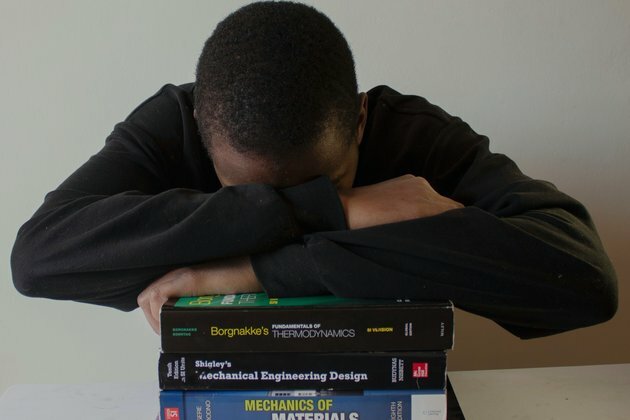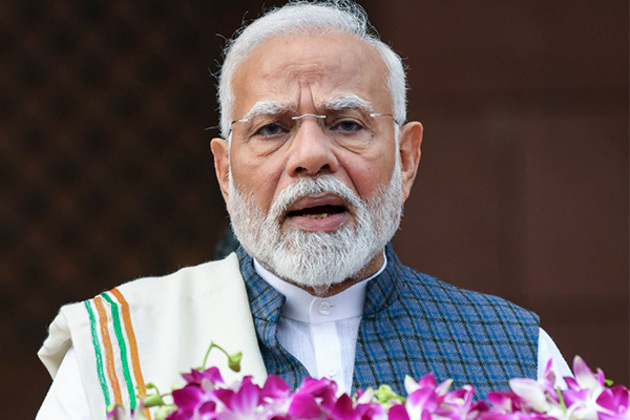How the pandemic is hurting university students' mental health
The Conversation
04 May 2021, 20:11 GMT+10

Institutions of higher education worldwide are undergoing unprecedented change because of the COVID-19 pandemic. Universities and colleges have been forced to switch to online teaching and learning. Many were unprepared for this move to what is termed emergency remote teaching and learning.
It is now just more than a year on from many countries' initial lockdowns. Many universities have adopted some form of hybrid learning approach. They are attempting to combine face-to-face and online instruction into a single, seamless experience. This situation is likely to remain the status quo for some time, especially in the Global South. That is because, although a variety of vaccines are available around the world, distribution and actual vaccination has been slow in poorer countries - and particularly on the African continent.
Read more: Interested in vaccine rollouts across Africa? Here's a map to guide you
This has serious implications for higher education. For many students, the university campus isn't just where they go to learn. It also provides a space for relationships that helps them to form important networks and alliances that evolve and extend beyond their university education.
We wanted to know how students have coped and are negotiating the current challenges. So, we conducted research soon after the pandemic started that explored how teaching and learning had been affected. This initial publication focused on one of South Africa's research-intensive universities. It revealed that students had struggled to manage online learning remotely.
A network of global researchers from multiple disciplines and universities (including five institutions in South Africa) is now replicating this study. Their aim is to understand better the situation elsewhere in Africa as well as in Europe, South America, the Caribbean and North America. Ultimately, these studies will help us to make sense of how the pandemic is reshaping higher education.
The initial study confirmed the need to prioritise university students' welfare. We found that undergraduates, full-time students, and female students were especially vulnerable at home while learning online due to the pandemic. Given South Africa's gender-based violence crisis, stay-at-home learning has exposed many young women students to challenging and dangerous situations.
The global pandemic has created more uncertainty about the future, including higher education and the world of work. This uncertainty emerged in our research as fundamentally affecting mental health. South African universities have to support students' transition through this uncertainty. That includes the difficulties stemming from lack of social cohesion - including peer-to-peer relationships on campus - that are afflicting students.
Seven key themes
For our study, a total of 1,932 university students completed an online questionnaire over a period of six weeks. A mix of undergraduate and postgraduate, and international students also were involved.
The questionnaires yielded demographic data. They also examined students' perceptions of readiness and motivation for online teaching, learning and assessment; student engagement; and their attitudes towards COVID-19 and its impact on higher education. Open-ended items also were included. These asked the students to reflect on the disruption caused by the pandemic.
Seven themes emerged from the data. These represented challenges that hindered students' ability successfully to learn online during the COVID-19 era. The themes were:
- Internet connection
- Mental health
- Personal challenges/ability
- Time management
- Being easily distracted
- Family members making studying difficult
- The interaction between lecturers and students
We found that undergraduate and full-time students were approximately twice and four times, respectively, more likely than were postgraduate and part-time students to indicate problems associated with mental health. Those aged between 18 and 24 were approximately 1.75 times more likely than students older than 24 to present problems associated with mental health.
The findings also reveal a gender dimension to mental health in our study. Specifically, female students were 1.83 times more likely than male students to indicate problems associated with mental health. These problems included stress, anxiety and depression.
Students expressed challenges with time management, distraction and problems associated with family members. These were situated in the notion of self-directed learning and self-management. These notions entail discipline, personal commitment, motivation and so on. Researchers have argued that self-directed learning is important to success. Students struggled with the lack of physical support from their peers and lecturers. They said they were unable to stay motivated and focused by themselves within the remote learning space.
Internet connectivity emerged strongly as a theme. This indicates how great the digital divide is between South Africa's urban and rural areas. Older students were more likely than were their younger peers to experience connectivity issues. This supports the argument that younger university students are more likely to be digital natives than older students. International students, many of them back at home in other African countries because of the pandemic, struggled the most with connectivity. The university provided data bundles to local students so they could access streamed lectures.
Overall, the results under this theme showed a lack of internet connectivity in rural areas, in general, and particularly in South Africa's poorest provinces. A large relationship emerged between the poverty ranking of provinces across South Africa and the degree to which students reported experiencing internet connectivity challenges.
Long-term strategy
A country like South Africa cannot afford to ignore the impact of the pandemic on higher education, especially on students' health and well-being. South Africa's comparative and competitive edge is locked in the youth, especially university students. They are a critical mass in "building the capability of the state to play a developmental, transformative role" according to the National Development Plan 2030.
South African universities, working with the Department of Higher Education and Training and other national government departments, must create and resource a long-term strategy to support the well-being of university students as they transition through this pandemic. One example is that of the Wellbeing at Oxford programme at Oxford University in England. Online mental health services, as provided in Canadian universities, must become an integral and sustained intervention in South African universities going forward.
Authors: Emmanuel Ojo - Senior Lecturer, University of the Witwatersrand | Annie Burger - PhD student, Stellenbosch University | Anthony J Onwuegbuzie - Senior Research Associate, University of Cambridge | Bryan Jason Bergsteedt - Lecturer (Clinical Anatomy), Stellenbosch University | Samantha Adams - Senior Lecturer in Industrial Psychology, Stellenbosch University | Talitha Crowley - Senior lecturer at the Department of Nursing and Midwifery, Stellenbosch University 
 Share
Share
 Tweet
Tweet
 Share
Share
 Flip
Flip
 Email
Email
Watch latest videos
Subscribe and Follow
Get a daily dose of Zimbabwe Star news through our daily email, its complimentary and keeps you fully up to date with world and business news as well.
News RELEASES
Publish news of your business, community or sports group, personnel appointments, major event and more by submitting a news release to Zimbabwe Star.
More InformationInternational
SectionSources: Meta won’t alter data model, faces fresh EU charges
BRUSSELS, Belgium: Meta is holding firm on its controversial pay-or-consent model, a move that could lead to fresh antitrust charges...
Trump’s tariff push could push US rates above 20%, ICC says
LONDON, U.K.: American consumers and businesses could soon face the highest overall tariff burden in more than a century, according...
U.S. Urged to Investigate After Israeli Settlers Beat Palestinian-American to Death
The family of Sayfollah Saif Musallet, a 20-year-old American citizen who was beaten to death by Israeli settlers in the occupied West...
New Hampshire federal court ruling defies Trump’s citizenship move
CONCORD, New Hampshire: A federal judge in New Hampshire issued a crucial ruling on July 10 against President Donald Trump's executive...
Houthis attack cargo ship in Red Sea, raising maritime safety fears
DUBAI, U.A.E.: A cargo ship flagged under Liberia, known as the Eternity C, sank in the Red Sea following an attack executed by Yemen's...
Trump administration restarts Ukraine arms deliveries
WASHINGTON, D.C.: The Trump administration has started sending some weapons to Ukraine again, just a week after the Pentagon told officials...
Africa
SectionUAE: CM Mohan Yadav attends 'Madhya Pradesh Business Investment Forum' Program
Dubai [UAE], July 14 (ANI): Madhya Pradesh Chief Minister Dr Mohan Yadav attended the 'Madhya Pradesh Business Investment Forum Program'...
Richard Ngarava surpasses Sikandar Raza to become highest wicket-taker in T20Is for Zimbabwe
Harare [Zimbabwe], July 14 (ANI): Zimbabwe left-arm seamer Richard Ngarava became the top wicket taker for his national team in the...
Logistics, supply chain infrastructure, foreign investment feature as key avenues of discussion during MP CM Yadav's UAE visit
Dubai [UAE], July 14 (ANI): Madhya Pradesh Chief Minister Dr Mohan Yadav held wideranging interactions with industry experts for bringing...
South Africa's Lungi Ngidi levels iconic Dale Steyn's T20I record
Harare [Zimbabwe], July 14 (ANI): Known for his pace and crafty bowling, South Africa's Lungi Ngidi levelled legendary tearaway Dale...
Brevis, Linde shine as South Africa start tri-nation series with win over Zimbabwe
Harare [Zimbabwe], July 14 (ANI): A fantastic three-wicket spell by all-rounder George Linde and a fiery knock from Dewald Brevis helped...
PM Modi condoles demise of former Nigeria President Muhammadu Buhari
New Delhi [India], July 14 (ANI): Prime Minister Narendra Modi on Monday condoled the demise of former President of Nigeria, Muhammadu...













